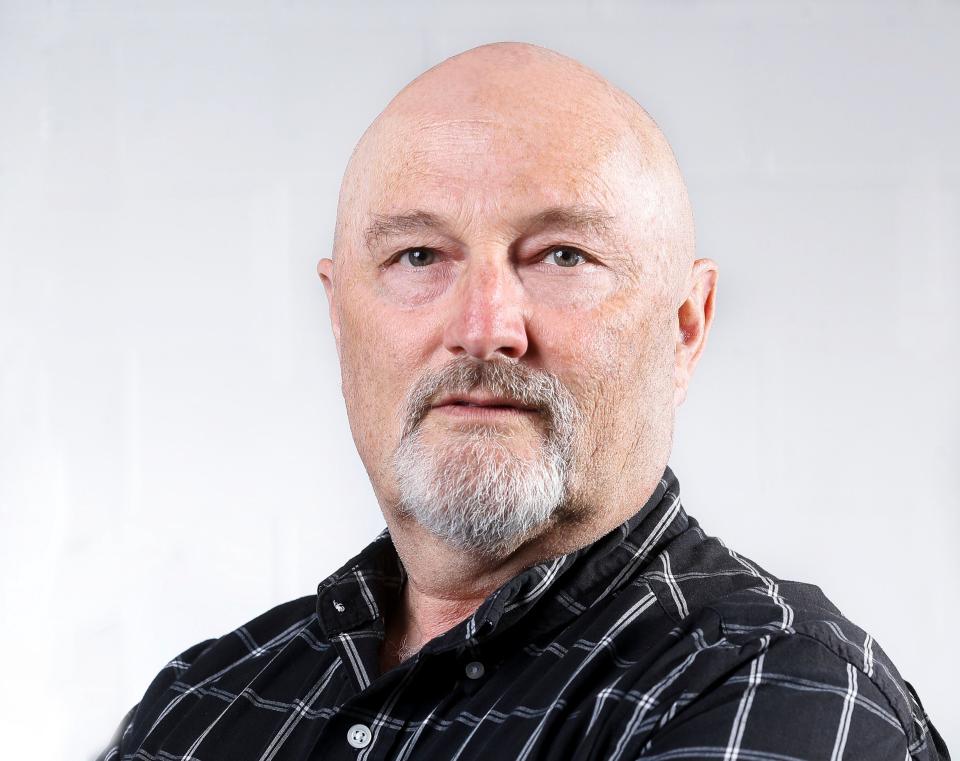GARY COSBY JR.: Contemplating death after the loss of Cecil Hurt

Every reader of the Tuscaloosa News is certainly aware of the passing of our colleague, Cecil Hurt. He was a fine person and a writer of unparalleled ability, but I can’t say that I knew Cecil much better than did our readers.
We roomed together a couple of times on the road. We spent several hours together in cars on road trips. I listened to him, tried not to talk too much because, well, he was Cecil. He knew a lot more about stuff than I did and I don’t like feeling ignorant. Not that he ever demeaned me in any way. It was always me being awed by what he said or wrote that made me feel ignorant.
TOMMY DEAS: Tuscaloosa lost an institution, The Tuscaloosa News lost an icon and I lost a friend
The loss of Cecil also means the loss of a vast wealth of knowledge across a broad spectrum. He was very well-read and seemed to know all that needed to be known about Alabama sports. It goes without saying, but I will say it: We all lost a treasure.
His death led me to think about death in general. While that may seem obvious, I don’t mean it as you might think. From our point of view, death is a rather permanent condition. Even if one dies and is resuscitated, or even resurrected, as was Lazarus in the Bible, death will still come for us all. Death is the only real guarantee in life.
I wonder what Cecil would write to us from beyond the doorway of death? Now that would be a column worth reading.
READERS REMEMBER: Tuscaloosa News readers pay tribute to Cecil Hurt
But what exactly is death? If death is the ultimate end, and the only ones I am aware of who actually believe that are atheists, then when our hearts stop and our brain functions cease we will simply turn off like a light. Never mind that such a demise violates a principle of the law of conservation of energy. At an elemental level we are a chemical-electrical engine, therefore we are energy.
If we account for the spiritual, the indefinable and empirically unprovable part of man, our consciousness, if you will, then death becomes something else entirely. Perhaps death is a doorway. Certainly from the perspective of the eternal, our mortal existence is brief, little more than a flash in the vastness of the universe.
If, however, we are also as the preachers say, an eternal being housed temporarily in a mortal shell, our energy, our spirit, our consciousness, must be preserved. That law of conservation of energy contains the idea that energy can neither be created or destroyed, but can be changed. I believe the Bible and science agree on this point, "for we shall all be transformed …"
In that hope, the misery of death that we survivors experience becomes bearable. We can endure the loss of a loved one as long as we think of death as a doorway into a different level of existence.
Oblivion is hopeless and if oblivion is the ultimate end of man, then what a truly miserable existence life on Earth in its brevity, pain and suffering becomes. Life, if this is all there is, would be the ultimate futility, the ultimate chasing of the wind.
For who could possibly attain enough in this world to somehow justify having hope? If you were to become president, would anything short of dominating the world be enough? And there could only be one who did so, leaving the rest of mankind thoroughly unsatisfied and without justification for his or her existence.
The hope of death, then, is life unbridled without the boundaries imposed upon us by mortality. If we live without hope we live without any sort of purpose. Without hope does it matter if I am kind to someone or not? Does it matter if I extend a hand to a person who has fallen, give money to charity, offer a kind word to a stranger or even pet a dog?
With hope, the smallest gesture takes on meaning. Without hope, even the most extravagant gesture is meaningless. Viewing death as oblivion becomes itself an end, a pointless end. If our faith does nothing more than give us hope, then faith is the greatest gift ever given to mankind.
In hope, we soldier on through our pain of loss, through the afflictions of our mortal body, through trials of all kinds. We push on and not just to the benefit of ourselves. We push through our pains and trials and still manage to extend kindness and help to those in more dire circumstances than our own.
We see the world through a positive lens. We act according to hope rather than despair. We are enabled to love, but equally important, we are enabled to let go of those we love when death does come because we have the promise of a reunion beyond the boundaries imposed by our mortality.
I have no real idea what lies beyond death’s door only a hope that some form of existence, heaven in my belief system, does await. If nothing is there then, as the Apostle Paul wrote, we are of all men most to be pitied.
Gary Cosby Jr. is photo editor of The Tuscaloosa News. Readers can email him at gary.cosby@tuscaloosanews.com.

This article originally appeared on The Tuscaloosa News: GARY COSBY JR.: Addressing the question of death

